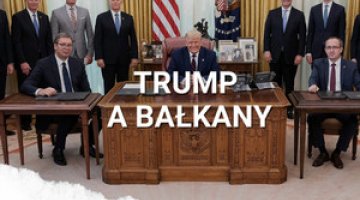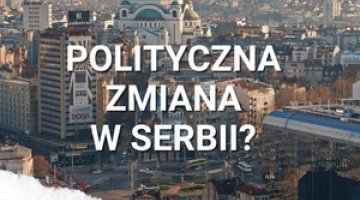Triple elections in Serbia will not change the country's pro-European orientation
On 6 May parliamentary, presidential and local elections were held in Serbia. In the election to the National Assembly none of the parties won a landslide victory. The Conservative and left-wing coalition of Tomislav Nikolic and his Serbian Progressive Party (SNS) garnered 24% of the vote (73 seats) and the pro-European coalition “Choice For a Better Life” grouped around the Democratic Party (DS) of the former president Boris Tadic garnered 22% of the vote (67 seats). The Coalition of the Serbian Socialist Party (SPS), the party of the late Serbian leader Slobodan Milosevic secured 44 seats. 21 representatives of the nationalist Democratic Party of Serbia (DSS) and the representatives of two liberal parties – the United Regions of Serbia (URS) and the U-Turn party obtained 20 and 16 seats respectively. Nine seats will be occupied by representatives of national minorities.
The first round of the presidential election was not conclusive. Former president Boris Tadic is the favourite in the second round (25.33% of the vote) who will compete with conservative Tomislav Nikolic (24.99%).
The turnout in the elections reached approximately 60%. Voting went smoothly and was compliant with democratic standards. No incidents were reported in the communes in Kosovo inhabited by Serbs where the Serbian parliamentary and presidential elections were conducted by the Organisation for Security and Co-operation in Europe.
-
Although economic and social issues were the main topic of the campaign, the opposition parties were not able to discount society's large dissatisfaction caused by the country's difficult economic situation. The parties which are part of the present government (the DS, URS and SPS coalitions) recorded similar results as to those in the election in 2008 (117 seats compared to 122 seats).
-
The campaign itself shows that the traditional division on the Serbian political scene into pro-European and Eurosceptic parties (which value co-operation with Russia above EU integration) as well as the issue of the policy towards Kosovo have lost importance. Serbia's pro-European orientation is now within the consensus of all parliamentary parties with the exception of DSS. The results of the election also point to the fact that extreme-nationalist parties are no longer enjoying substantial support in Serbian society. Only one of them – DSS – crossed the electoral threshold.
- It is SPS, the party of the interior minister Ivica Dacic, which was the most successful. It skilfully combined pro-European rhetoric and leftist populism and at the same time referred both to moderately nationalist slogans. SPS won twice as many votes as it had in the 2008 election and it is currently the third largest power in the Serbian parliament and the composition of the future coalition will depend on SPS. In the most likely scenario, the government will be established by the parties belonging to the present coalition – DS and SPS – together with liberal parties and representatives of national minorities. There are slim chances of a radical change of Serbia's policies and the establishment of a government which will back away from integration with the EU. Definitive decisions regarding the creation of the government may be expected after the second round of the presidential election (20 May).




